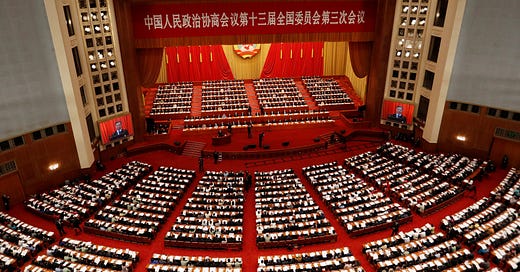Parallel with the U.S.-sponsored Summit on Democracy, in which important world leaders were not invited, the Information Office of the Council of State of the People’s Republic of China on December 4 released a 14,500-word white paper, China: Democracy That Works.
The document opens with the important observation that “democracy is a common value of humanity.” With the post-modern tendency in the West to emphasize the particularity of opinions and perspectives, and with the ethnocentric tendency of the West to pay scant attention to the discourses of Third World leaders, we in the West have tended not to notice that universal human values are being emphasized by the neocolonized peoples of the world, accompanied by demands that the global powers comply with the values that have been codified in declarations and documents of the United Nations. These universal human values include respect for the sovereignty and equality of nations, the right of all nations to use their nat…


